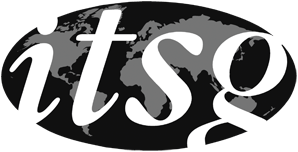Corporate Tax Guide: Switzerland

Members:
- Michael Fischer (Fischer Ramp Buchmann AG)
- Aliasghar Kanani (Kanani/Rezki Avocates)
- Reto Luigi Pianta (Reto Luigi Pianta)
|
1. Country
The information is valid for the entire country except where indicated. For example, in the case of Malaysia, Labuan is part of Malaysia but has a special tax regime, so this is noted. |
Switzerland | ||||||||||||||||||||
|
The corporate tax rate shown is the typical corporate tax rate that a domestic corporation owned by non-resident persons would pay. The tax rate does not include withholding tax on dividends, but does include a distribution tax shown separately if applicable. Certain countries have a low corporate tax rate, but charge an additional tax when a dividend is distributed. Because this tax is paid by the corporation, and not deducted from the amount of the dividend itself, it is not a dividend withholding tax. As a result, it typically cannot be reduced by an international tax treaty. |
Taxes are levied on a Federal, Cantonal and Communal level.
| ||||||||||||||||||||
|
The basis of taxation for a corporation will typically be one of:
|
Worldwide income, with the exception of income deriving from foreign branches. | ||||||||||||||||||||
|
Where non-resident corporation carries on business in a country, business profits may be subject to corporate tax. In addition, a branch profits tax may apply in lieu of dividend withholding tax. This branch profits tax applies to the after tax profits, typically at a fixed percentage. An international tax treaty may reduce the rate of branch profits tax, typically to the rate provided for dividend withholding. |
No. | ||||||||||||||||||||
|
The common forms of business entity are noted. In addition, the entities which are flow through entities for U.S. tax purposes are indicated. |
Sole proprietorship, Simple Partnership, General Partnership, Limited Partnership, Corporation/Public Limited Company, Cooperative, Association. | ||||||||||||||||||||
|
Capital gains may be fully taxed, partially taxed or not at all. In certain countries, an exemption, called the participation exemption, will apply to exempt from tax a capital gain from disposition of a substantial holding of shares of a subsidiary. Where a participation exemption is applicable, it is noted together with a summary of the main conditions. |
Capital gains derived from the disposal of a qualifying participation are generally entitled to participation relief if the following conditions are cumulatively met:
| ||||||||||||||||||||
|
Certain countries allow group taxation, otherwise known as consolidated tax filing. Here the tax returns of a group of corporations in the country may be combined together, which can be useful. If group taxation is permitted, it is noted along with the main conditions. |
Not available. | ||||||||||||||||||||
|
Countries offer various kinds of special exemptions and incentives. Examples are a reduced tax rate, a tax holiday, a tax credit on the purchase of equipment, special accelerated deductions for deprecation, incentives for R&D, and various others. Here the major items are noted. |
Tax holiday: Tax incentives are granted on a case-by-case basis and their extent and duration largely depends on the size of the investment and the importance attributed to the economic development of the Canton or region concerned by the Cantonal and Federal governments. Such an incentive may be either relief or exemption from income and annual capital tax for up to ten years. The Canton of Nidwalden offers a so-called "Patentbox", with reduced tax rates on patent income. Provisions for future expenses relating to R&D payable to third parties are deductible up to a maximum of 10% of the net profit, with a ceiling of CHF 1 million. Under certain conditions, companies are allowed to set up a tax privileged recession reserve up to an amount of 20% of the annual gross salaries paid. The amounts are deductible for federal, cantonal and communal tax purposes. Accelerated write-down on fixed asset investments is granted in certain Cantons. There is also a wide variety of non-tax incentives granted by certain regions (such as cash grants etc.). | ||||||||||||||||||||
|
Many countries have thin capitalization rules which limit or deny the deduction of interest expense in certain circumstances. For example, if debt exceeds three times equity, a proportionate amount of interest expense may not be deductible. Limitations take various forms, restricting the interest expense deduction to a percentage of profit, deeming the debt to be equity and the interest to be a payment of dividends, and various other rules which may blend of these principles. Where a country has thin capitalization rules, they are briefly described. |
Yes, special debt equity rules apply. Based on an instruction issued by the Federal Tax Administration ("FTA"), the debt-to-equity ratio must be determined based on the fair market value of a company's assets. The FTA believes that the amount of available borrowings should be determined depending on the category of assets. Regarding finance companies, the safe harbour ratio is 6:1. The same rules apply on a Cantonal/Communal level. | ||||||||||||||||||||
|
Many countries have transfer pricing rules. They very often follow the OECD guidelines and the arms length principle. Some countries have specific rules which apply in certain cases. In addition, some countries allow for a selection of the most appropriate transfer pricing methodology in the circumstances, while other countries follow a hierarchy of methods, with the CUP method (comparable uncontrolled price) often ranking first. The transfer pricing rules are briefly explained. |
No specific Swiss rules in place. The OECD Guidelines are applicable. | ||||||||||||||||||||
|
11. CFC Rules
Many countries tax passive income earned in controlled foreign corporations (CFC’s) on an imputation basis while active income is not taxed. Such CFC rules are usually complex and vary significantly in what is considered passive income, and how foreign tax paid is taken into account. Some countries approach CFC rules on the basis of whether or not the foreign corporation is resident in a low tax jurisdiction or a tax haven. This may be done through a black list of countries. The general overview of CFC rules is described in simple terms. |
In Switzerland, no CFC or “subject to tax” rules exist. Foreign companies are, therefore, recognised for Swiss tax purposes if they are managed and controlled offshore and are not set up purely for the reason of avoiding Swiss taxes. | ||||||||||||||||||||
|
Profits repatriated by way of dividends from a subsidiary to a parent company are typically taxed in one of three ways:
|
Dividends qualifying for participation relief are those from participations representing at least 10% of the share capital or 10% of profits and reserves of another company, or those having a market value of at least CHF 1 million (see 6. above). Note that there is neither a minimum holding period nor a requirement that the dividend-paying subsidiary is liable to income tax in its jurisdiction of residence. | ||||||||||||||||||||
|
Most countries allow a foreign tax credit based on a formula, typically net foreign income over the net income times taxes payable. This limits the foreign tax credit to roughly the domestic tax otherwise applicable to the foreign income. There are numerous variations and technical rules in the details of foreign tax credit calculations. Where a foreign tax credit is allowed, the general principles are described. |
To the extent that a Swiss taxpayer suffers tax on the same income in two countries, there may be provisions in the double taxation treaties concluded by Switzerland for obtaining foreign tax credits for income that has been taxed twice. | ||||||||||||||||||||
|
14. Losses
Losses typically can be carried forwards for a period of years, and sometimes can be carried back. Losses may be segregated into capital losses and non capital losses. |
Losses can be set off against future profits of a company for a period of seven years. | ||||||||||||||||||||
|
It is not practical to list all of the tax treaties which a country has in a simple guide like this. Accordingly, a link is provided in each case to the tax treaties. Some countries have entered into Tax Information Exchange Agreements (TIEA). Treaties are more and more containing provisions that limit benefits (LOB provisions). |
| ||||||||||||||||||||
|
Withholding tax rates vary considerably from treaty to treaty, and countries may have domestic exemptions applicable in certain circumstances (for example copyright royalties, interest paid to arm’s length persons, etc.). A table shows the typical rates but cannot adequately summarize all of the details. The applicable treaty should be consulted. |
| ||||||||||||||||||||
|
17. Taxation Year
Some countries allow for the selection of year-end while other countries specify a particular year-end which all business entities must have. Normally the taxation year cannot exceed 12 months. Where it can exceed 12 months, this is noted. |
Any year-end is available by choice. In the first year since incorporation, it is possible to prepare financial statements based on a period of a maximum of 18 months. Usually financial statements are based on a 12-month business period. It is possible to change the year-end, whereby the period may not exceed 18 months. If exceeding this limit, interim financial statements must be prepared. | ||||||||||||||||||||
|
This is the due date for filing a tax return. Where extensions are available, this is noted. |
One tax return is filed (regarding Federal, Cantonal and Communal taxes) on an annual basis. The filing deadline depends on the Canton in which the company is domiciled. An extension of the deadline can be applied for. | ||||||||||||||||||||
|
19. Tax Instalments
The typical tax instalment requirements are noted. |
Yes. Usually not paid in instalments, but it may be possible to pay in instalments if the company has liquidity problems. | ||||||||||||||||||||
|
20. Payment of Tax
This is the date when the corporate tax owing for the year must be paid. It may be different from the tax return filing due date. |
First, a provisional invoice is issued based on the previous tax period. This amount is adjusted when the tax return is filed. A final invoice is issued once a final tax assessment has been made. | ||||||||||||||||||||
|
This is the period after which the tax department cannot in normal circumstances reassess a taxation year. It is sometimes referenced to the end of the taxation year and sometimes to the date of the first assessment of that taxation year. |
The right of the authorities to assess a filed tax return generally lapses five years after the tax period in question has elapsed. The tax authorities can open a special tax procedure up to ten years after the tax period has elapsed, if they identify that a previously-assessed tax return has been faulty (or that no assessment was issued at all), or if new facts or evidence are brought forward that were previously not known to the tax authorities. Treaties may contain shorter periods. Other statutes of limitations apply to taxes other than direct taxes. | ||||||||||||||||||||
|
If a country has exchange controls, this is noted, together with the main requirements. |
No. | ||||||||||||||||||||
|
23. VAT
A VAT tax system typically provides that the supply of goods and services is classified as taxable, tax exempt, or zero rated. Where a business is engaged in an activity which is taxable, it must charge VAT on its revenue, and can claim a refund of VAT on its expenditures. Where the activity is exempt, it does not charge VAT on its revenue, and cannot claim back VAT paid. Where the entity is engaged in activities which are zero rated (typically agriculture, food services and exports), then it can claim back VAT which it has paid on its expenditures, and does not charge VAT on its revenue. If a country has a typical VAT system, this is noted. If a country has no VAT system but a sales tax system, this is indicated. Some countries may have a mixture, and taxes may apply at different levels (federal and state for example). |
Yes, ordinary tax rate is 8%. A reduced tax rate of 2.5% (everyday items like food) or 3.8% (accommodation) is applicable on certain goods/services. | ||||||||||||||||||||
|
Stamp duty, or land transfer tax, can apply on such things as the transfer of shares, land, or the issuance of bonds or debentures. This is described together with the applicable rates. |
Only levied on a Cantonal/Communal basis. Not all of the Cantons/Communes levy land transfer tax. Tax rates vary. | ||||||||||||||||||||
|
25. Capital Tax
If capital tax is payable, this is described. Capital tax may apply in specialized industries, such as banking and insurance, even if a country does not generally apply a capital tax to corporations. |
Capital tax is only levied on a Cantonal/Communal basis. Tax rates vary between 0.02% and 0.6%. | ||||||||||||||||||||
|
26. Other Taxes
Where significant, other taxes are noted. |
Stamp Duty of 1% on the issue of shares exceeding CHF 1 million. Stamp transfer tax on the sale/purchase of securities, if a so-called securities dealer is involved. Other taxes may apply, depending on the situation. | ||||||||||||||||||||
|
Anti-Avoidance Rules take many forms, the most common ones are a general anti-avoidance rule, treaty shopping limitations, the requirement for economic substance (or a business purpose in carrying out transaction) and specific anti-avoidance rules for particular purposes. A very brief overview of the anti-avoidance rules is described. |
Unilateral anti-avoidance rules with regard to double taxation treaties have been published by the Federal Tax Authorities. Bilateral anti-avoidance rules are contained in various double taxation treaties. The bilateral rules take precedence over the unilateral anti-avoidance rules. | ||||||||||||||||||||
|
Where a non-resident person holds shares of a corporation established in the country listed, the capital gain which results may be taxable or not taxable depending on the circumstances and, possibly, the existences of an international tax treaty. The general rules are noted. |
Sale of shares by non-resident usually not taxable. Exceptions may apply if the company owns real estate or qualifies as a real estate company. In this case, a so-called step up in basis of the book value of the real estate to market value takes place. Sale of the shares by an individual with residence in Switzerland is usually qualified as a tax-free capital gain. Exceptions apply if the shares are held as business assets or if the individual qualifies as a securities dealer. Sale of the shares by a corporation is considered a tax-free capital gain, insofar as at least 10% of the shares are held for a period of at least one year. | ||||||||||||||||||||
|
Where a corporation is acquired through the purchase of shares, sometimes a step up is allowed so that the cost of its assets can be revalued. The main rules are briefly summarized. |
Step up may be available but only for real estate, if real estate tax had to be paid due to an economic change of ownership. This depends on the legislation in the Canton where the real estate is located. | ||||||||||||||||||||
|
30. Use of Rulings
In some countries, rulings are commonly used (and sometimes even required). In other countries the system is either unavailable or not commonly used except in special circumstances. |
Obtaining tax rulings is common practice in Switzerland. They are not required but are recommended in cases that are more complex, prior to the implementation of the steps. | ||||||||||||||||||||
|
31. Other
Other important aspects of the tax system are noted. |
Switzerland is currently working on Corporate Tax Reform III. This will include the abolishment of certain tax status like the domiciliary and mixed company status. The Swiss population declined the first draft of the new legislation proposed by the Swiss government in February 2017 and it is expected that a new draft of the legislation will be published in the course of 2017. | ||||||||||||||||||||

 Login
Login

















































